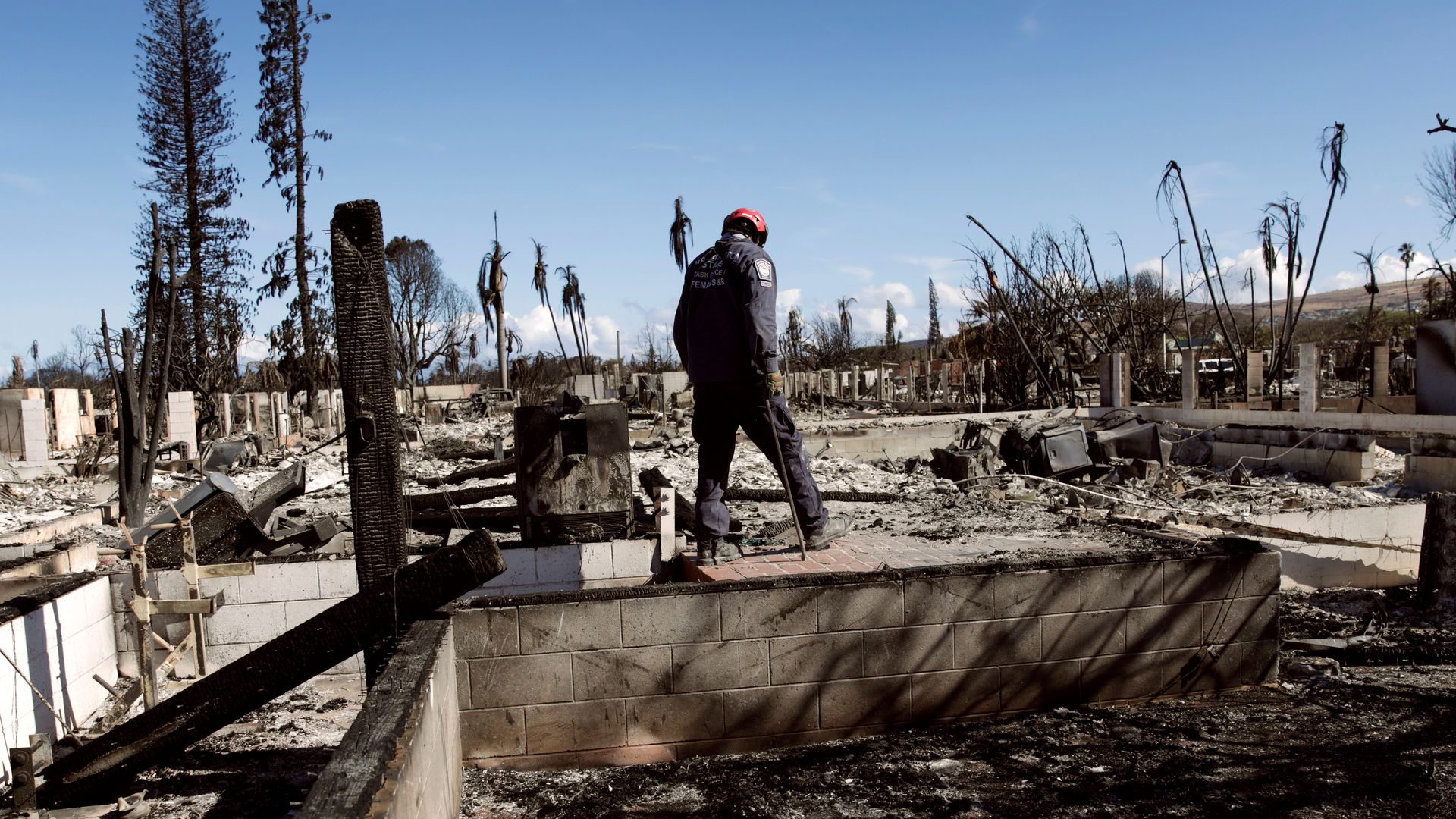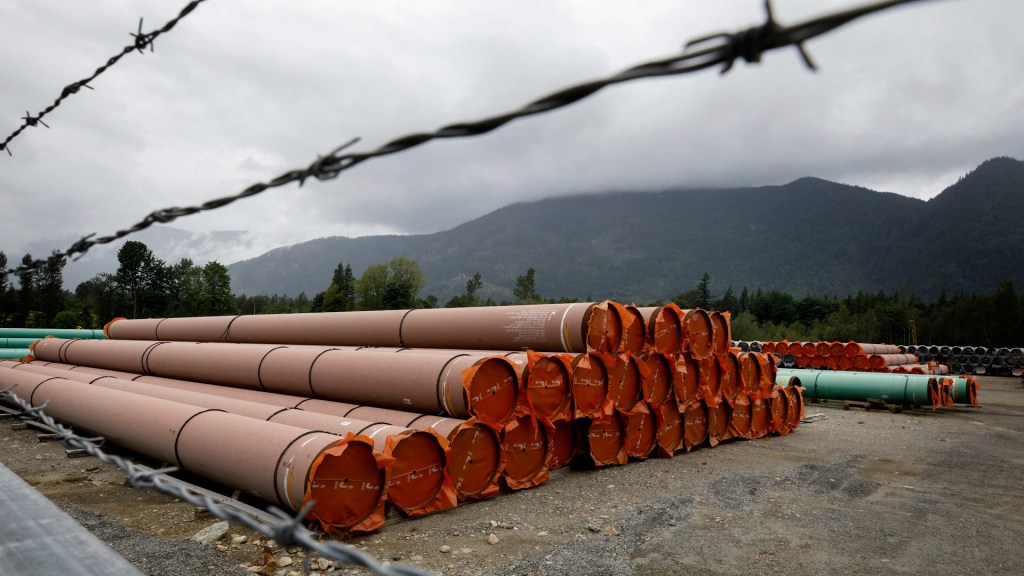
[NARA BOONE, SPOKESPERSON | MAUI TENANTS ASSOCIATION]
“The rent is too damn high. *cheers from crowd* That says it all.”
[ANCHOR EMMA STOLTZFUS]
In early August many of these peoples’ homes or jobs went up in smoke. Here, the Maui Tenants Association is calling on Hawai’i Governor Josh Green to continue a county-wide freeze on rent and evictions. The government’s official response came hours before the previous emergency proclamation was slated to end.
The Lahaina and Kula fires devastated large areas of Maui, with Lahaina hit the hardest. The fire killed at least 99 people. It leveled over 2,200 buildings, 86% residential, and damaged another 500. This has heavily impacted the island’s economy. In particular, it has strained an already stressed housing market. For months around 6,800 people have been living in federally-funded hotels and condos across the island. Many have found themselves moved between several different locations. And yet, they still haven’t found secure housing. Why?
Senator Angus McKelvey represents the district containing what remains of Lahaina. As a senator and someone who also lost his home to the flames, he’s been outspoken about the need for support and permanent housing for survivors.
[SEN. ANGUS MCKELVEY, (D) WEST AND SOUTH MAUI]
You just gotta scream and shout and shout and shout until they finally hear you out.
[ANCHOR]
For many, there simply isn’t affordable housing available on the market. A problem that existed even before a town went up in flames. The Valley Isle caters to tourists. A normally steady stream, forming 40% of the economy, that has slowed to a trickle. Visitor numbers and spending for September were down by over 50% compared to the same time last year.
Because of this heavy focus on tourism, roughly 15% of Maui County’s housing stock is listed as a short term rental. This, despite being illegal or heavily restricted in residential zones. That is significantly more than Los Angeles, Seattle, San Francisco, New York City, Las Vegas, and Chicago, according to the Economic Research Organization at the University of Hawai’i. In Lahaina, a destination spot within the island, 40% of residential buildings are short term rentals.
UHERO also found that across the county, only about 18% of residentially zoned land allows for multifamily housing. This area is key for building affordable homes. Some are pushing for the rebuilt Lahaina to be rezoned to include cheaper, more affordable housing. But, as Mckelvey says, it’s a balance between retaining the character and history of the town and ensuring locals can afford to live there.
[SEN. ANGUS MCKELVEY]
I think there’s a lot of opportunity to preserve and protect lands for that affordable housing and also plan together so you can create something where everybody benefits and there’s a communal sense of community there.
[ANCHOR]
Some are even calling to force short term rentals into long term rentals – prioritizing locals over visitors.
[MAUI TENANTS ASSOCIATION SPOKESPERSON]
Those properties alone can easily house everybody that has been displaced by the fires. Pull those permits. Do away with short term rentals now! *cheers*
[SEN. ANGUS MCKELVEY]
I absolutely agree. And again, because of the emergency situation, we require the government to do that, to take these kinds of steps. There should be no short term rentals in the area and there should be long term rentals only.
[ANCHOR]
McKelvey applauded a recent mortgage moratorium from the Federal Housing Administration, which lasts until May 2024.
[SEN. ANGUS MCKELVEY]
So, that is good news. But more needs to be done. But it’s an important development in getting that bar on FHA notes.
[ANCHOR]
While a small town, Lahaina was culturally and economically significant. The old Hawaiian capital’s 700 businesses made up 16% of all establishments on the island. Most have been destroyed, damaged, or made inaccessible due to the hazardous waste caused by the fire. The loss of those jobs has led to a marked increase in unemployment, which rose to 4.1% from its pre-fire 2.6%. In the month after the fires, about 11% of those previously employed in the county filed for unemployment.
[SEN. ANGUS MCKELVEY]
When you have lights in the darkness, it’s imperative upon us to shine the bright lights on them so people can see it. When we do have a victory, even like the HUD mortgage forbearance, it’s a start, but it’s worth shining a light on.
[ANCHOR]
The governor’s decision to release an eighth proclamation extending the rent and eviction freeze gives tenants like these a moment to breathe. But the road to recovery is long for the people of Maui.







